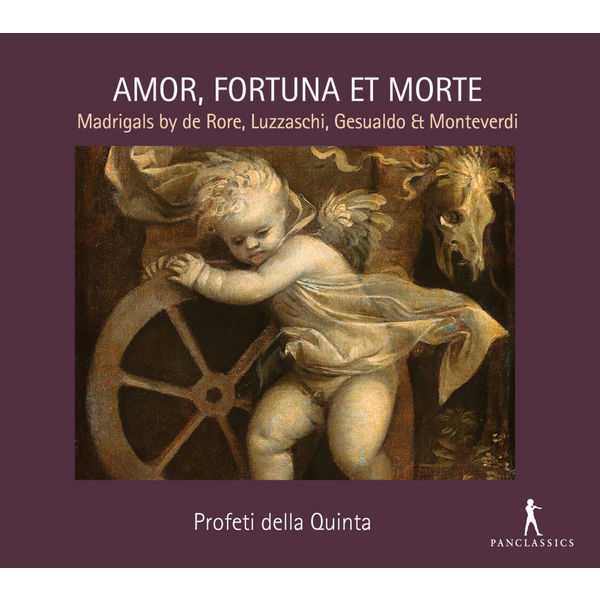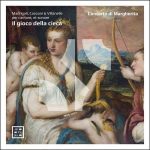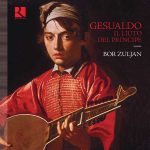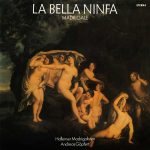
Composer: Carlo Gesualdo, Johannes Hieronymous Kapsberger, Luzzasco Luzzaschi, Claudio Giovanni Antonio Monteverdi, Cipriano de Rore
Performer: Profeti Della Quinta, Orí Harmelin
Format: FLAC (tracks)
Label: Pan Classics
Catalogue: PC10396
Release: 2019
Size: 271 MB
Recovery: +3%
Scan: yes
Rore: Madrigali à 4 voci, Libro 2
01. Datemi pace
02. Mia benigna fortuna
03. Schiet’arbuscel
Rore: Madrigali, Libro 1
04. Amor, ben mi credevo (Arr. O. Harmelin for Lute)
05. Ancor che col partire
06. Amor, ben mi credevo
07. Rore: Alcun non può saper
Luzzaschi: Madrigals, Book 4
08. Tu ribello d’Amor
09. Luzzaschi: Ahi cruda sorte mia
10. Gesualdo: Se la mia morte brami
Gesualdo: Madrigals for 5 Voices, Book 5
11. No. 10, Occhi del mio cor vita
12. Scipione Lacorcia: Ahi, tu piangi
13. Monteverdi: Lamento della Ninfa (Book 8), SV 163
Kapsberger: Libro D’Intavolatura di Lauto
14. Libro I d’intavolatura di lauto: Toccata No. 6
15. Monteverdi: Lamento d’Arianna, SV 22 (arr. for vocal ensemble)
Monteverdi: Il sesto libro de madrigali, 1614
16. Zefiro torna e’l bel tempo rimena, SV 108
The vocal ensemble Profeti della Quinta was founded in the Galilee region of Israel by the bass singer and harpsichordist Elam Rotem and is based in Basel, Switzerland, where its members undertook further studies of early music at the Schola Cantorum Basiliensis.
The ensemble focuses on the vocal repertoire of the 16th and early 17th Centuries. From its core of five male singers, the ensemble collaborates regularly with instrumentalists and additional singers.
Profei della Quinta have recorded CDs with music by the Jewish-Italian composer Salomone Rossi, Orlando di Lasso and Luzzasco Luzzaschi in addition to works composed by Elam Rotem.
The Madrigal was the most prominent genre of secular vocal music in the Renaissance and early Baroque. The program of this CD tells the story of the Italian Madrigal. It follows its evolution from the highly expressive polyphony of Cipriano de Rore to the revolutionary madrigals by Claudio Monteverdi that shaped the Baroque era.



